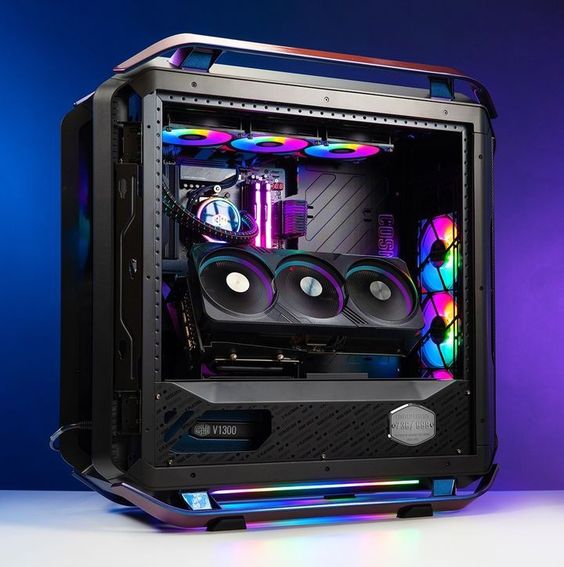Introduction
In the fast-paced world of gaming, having the right equipment can make all the difference. A high-performance gaming PC is the backbone of an engaging gaming experience, enabling you to enjoy stunning graphics, smooth gameplay, and rapid response times. But with so many options available, how do you choose the best one? In this guide, we’ll explore the essential components of gaming PCs, review some of the top models on the market, and help you make an informed decision for your gaming setup.
What Makes a Great Gaming PC?
When it comes to gaming PCs, several key components significantly influence performance:
- CPU (Central Processing Unit): Often referred to as the “brain” of your computer, the CPU handles calculations and processes commands. For gaming, a powerful CPU can help run complex games smoothly. Popular choices include Intel’s Core series and AMD’s Ryzen processors.
- GPU (Graphics Processing Unit): The GPU is critical for rendering graphics and ensuring high frame rates. A powerful graphics card like the NVIDIA GeForce or AMD Radeon series is essential for playing modern games at high settings.
- RAM (Random Access Memory): RAM allows your PC to run multiple applications simultaneously. For gaming, 16GB is generally considered the sweet spot, but 32GB is becoming more common for demanding titles and multitasking.
- Storage: A combination of SSDs (Solid State Drives) and HDDs (Hard Disk Drives) is ideal. SSDs offer faster load times and better overall performance, while HDDs provide additional storage for games and files.
- Cooling: High-performance components generate heat. Effective cooling systems—either air or liquid cooling—are crucial for maintaining optimal performance and longevity.
Choosing the Right Components
Selecting the right components can be daunting, especially for those new to PC gaming. Here are some tips:
- Set a Budget: Determine how much you’re willing to spend. A solid gaming PC can range from $800 to $3000, depending on your needs.
- Future-Proofing: Consider investing in slightly more powerful components than you need right now. This will ensure your PC can handle future game releases and software updates.
- Brand Reliability: Stick with reputable brands known for quality and support. Research customer reviews and expert opinions to guide your choices.
Top 5 Gaming PCs Reviewed
- StormBlade X1
- Specs: Intel Core i7-12700K, NVIDIA GeForce RTX 3060, 16GB DDR4 RAM, 1TB NVMe SSD.
- Performance: Handles AAA titles smoothly at high settings, perfect for both casual and serious gamers.
- Titan Fury GT
- Specs: AMD Ryzen 5 5600X, AMD Radeon RX 6700 XT, 32GB DDR4 RAM, 2TB HDD + 512GB SSD.
- Performance: Excellent for multitasking and demanding games, great value for performance enthusiasts.
- Nebula Pro V2
- Specs: Intel Core i5-12400F, NVIDIA GeForce GTX 1660 Super, 16GB DDR4 RAM, 1TB SSD.
- Performance: Ideal for casual gamers and those new to PC gaming, offering solid performance at a budget-friendly price.
- Phantom Gaming X
- Specs: AMD Ryzen 7 5800X, NVIDIA GeForce RTX 3080, 32GB DDR4 RAM, 1TB SSD.
- Performance: A beast for VR gaming and high-resolution play, this rig is for serious gamers wanting top-tier performance.
- Apex Caster 5000
- Specs: Intel Core i9-12900K, NVIDIA GeForce RTX 3090, 64GB DDR4 RAM, 2TB SSD + 2TB HDD.
- Performance: The ultimate powerhouse for gaming enthusiasts, capable of handling anything you throw at it.
Building vs. Buying
When it comes to getting a gaming PC, you have two primary options: building your own or purchasing a pre-built system.
- Building Your Own: This option allows for complete customization and often results in better value for money. However, it requires technical know-how and time.
- Buying Pre-Built: A great option for those who want a hassle-free experience. While it may be slightly more expensive, you get a system that’s ready to go out of the box.

